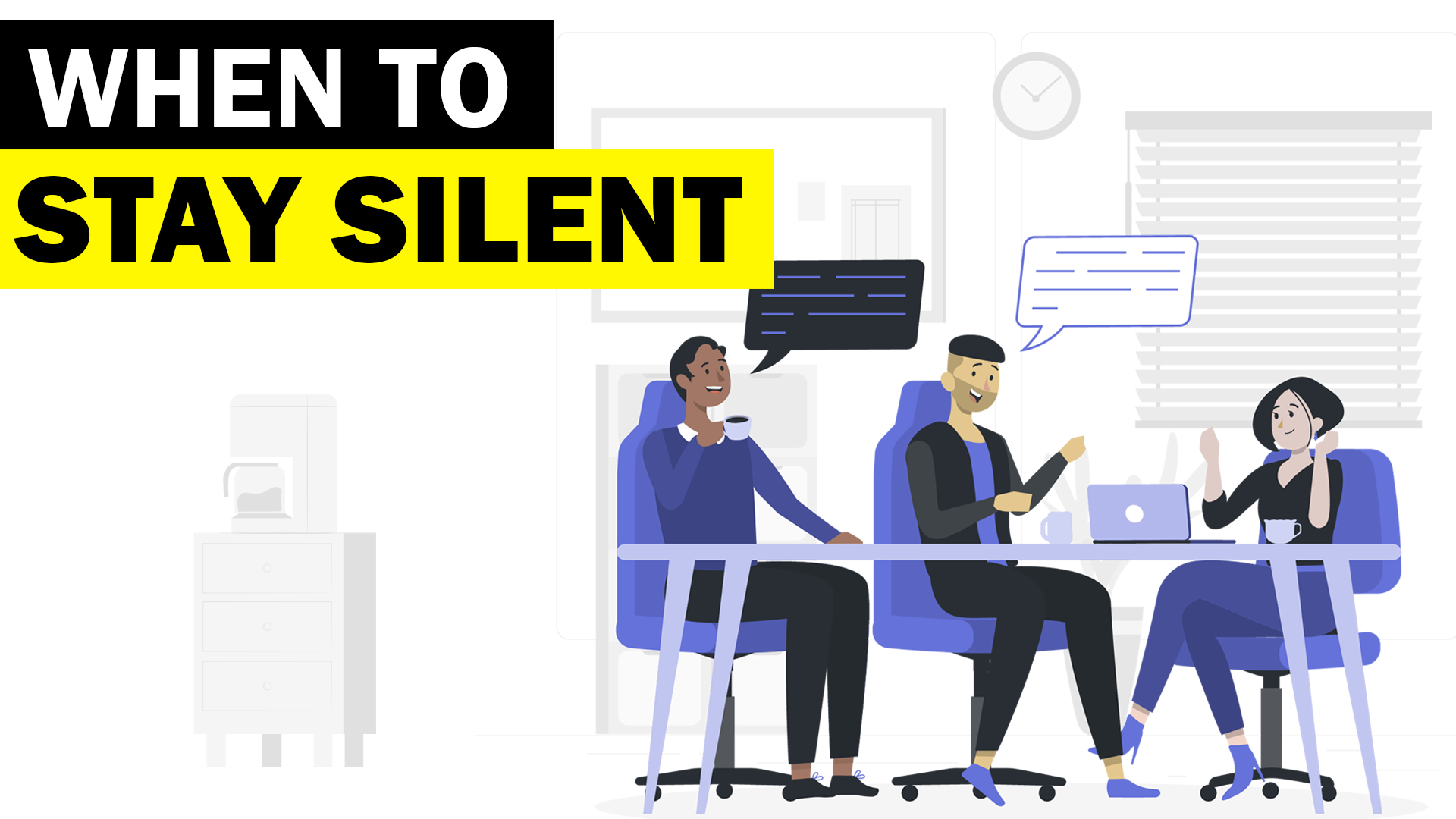“Staying silent can often be beneficial to you, and other times it can be beneficial to those around you.”
Expressing your opinion is a valuable skill. There are many situations where speaking up is the best thing we can do for ourselves and for others.
However, at the same time, there are other situations in which we should remain silent, and learning to identify these situations is just as valuable.
So, when should you not speak up? When should you keep your peace?
1. When your judgment is clouded
The first case when you should not speak up is when you are having trouble thinking clearly. This can be for many reasons. Maybe you are tired or under the influence or full of anger or anxiety.
In these situations, it’s better to wait a little before you speak your mind. If you don’t, it is possible that you will say something you will regret afterward.
If you give your ideas time to mature and still think the same way, you can talk about it later, but not when you are compromised emotionally or in other ways.
2. When your words will be hurtful
The second situation in which you should not speak up is when your words are more likely to be hurtful beyond being useful. Sure, there are situations when others need to hear the truth, harsh as it may be, but these situations are rarer than we think.
Consider whether the words you want to speak are going to be useful or if you are acting to hurt the other person.
When we choose to be hurtful, we often are angry or tired or upset, so sometimes it’s also useful to refer to the first point of this article and stay mum.
3. When your opinion doesn’t matter
The next situation when you should not speak up is when your opinion is irrelevant. It’s never easy to admit and accept it, however, it’s very important, even if our ego doesn’t agree.
When you don’t know enough about a situation or other people are experts or when your opinion has no impact on others, it’s often better to stay silent, just because it’s the wisest thing to do.
“Silence is the best answer to someone who doesn’t value your words.”
4. When you don’t have enough evidence
Sure, in some situations we are free to speculate and speak up even if we don’t have evidence. However, this is not always true. When we are talking about something that will likely have a big impact on another person, for instance, on their physical and mental well-being, we should not offer information that is not certain.
Hearsay might be fine in some contexts, but if our hearsay can sway a big decision, it’s best not to speak.
Say, for instance, that a person is considering whether to use a medication that might help them. It’s best not to bring up a rumor about a friend of a friend who used that medication and had side effects unless you are certain it’s a fact and not a rumor.
5. When asked not to speak
If recognizing that your opinion is not relevant is hard for the ego, being asked to stay silent is even harder. You might be asked to take a backseat in some situations, for instance, in some work contexts or in other circumstances, and that can make us want to speak up.
However, it’s best to restrain that impulse and instead reflect. Why are we being asked to stay silent? Listening and learning can also be good in these situations.
6. When you don’t have anything to say
Just because you feel you ought to add something doesn’t mean you should. Instead, you might support what someone else has said. It can feel awkward saying that you don’t have something to add, but it is usually better than speaking for the sake of speaking. Allow yourself to admit when there is nothing to add.
“Be careful with your words, once they are said, they can be only forgiven, not forgotten”


